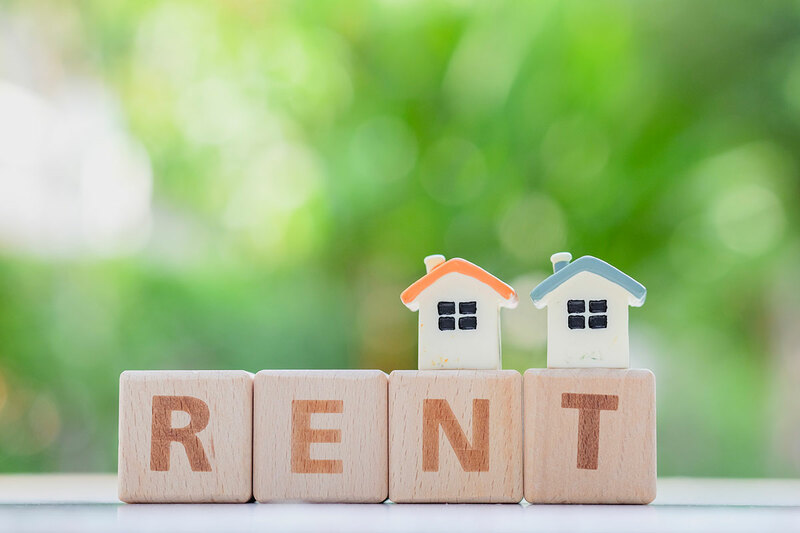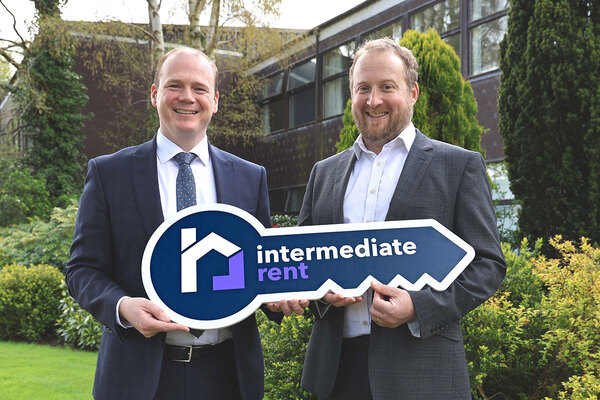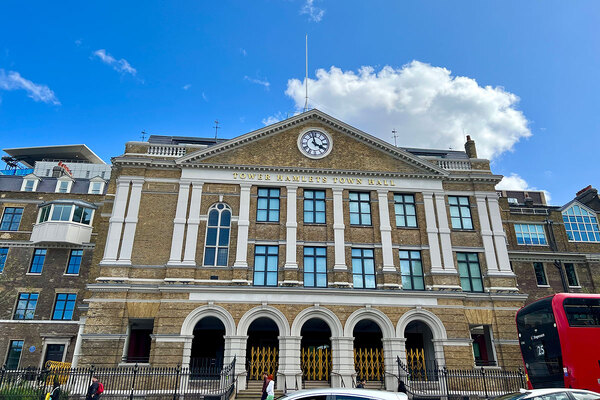You are viewing 1 of your 1 free articles
Setting below-inflation rent increases next year may be the wrong answer
With inflation soaring, the current rent formula means social landlords could have the option to put rents up by 10% next year. While it might feel wrong, this may be the right course of action for them to take, argues Cedric Boston
The Consumer Price Index (CPI) plus 1% is supposed to be the formula for a moderate rent increase.
Yet, no chief executive looking at today’s CPI will be looking forward to sending out notices imposing a 9.8% affordable rent increase next year.
Such a rent hike is counter to the image housing associations want to have and we know it will not play well in the public arena, whatever justification we present for it.
As a result, some landlords examining the feasibility of capping rents, at 5% or thereabouts.
The advocates of this approach range from those who just think it is politically expedient, to those who declare it is morally and politically unconscionable to impose a CPI rent increase on tenants. They propound the notion that a rent cap will leave money in the pockets of the poorest tenants.
I think we need more data to be sure we are making the best decision in the interest of both current and future tenants, and that whatever decision we make we will be better able to deal with the inevitable political fall-out if we act in unison.
“The largest group to benefit from a cap, apart from the government, are tenants with incomes significantly above benefit thresholds”
The primary objective for us now should be to try and reach a consensus. In this respect I think we should begin with research on all the options giving due consideration to each one.
Talk of a rent cap is premature and may turn out to be deterministic, bouncing us into a decision that we know will harm our industry for years to come.
It is a popular misconception that a rent cap leaves money in the pockets of the poorest tenants, allowing them to make their own decisions to mitigate the effect of price increases on their household.
From Unity’s perspective, the truth is that our poorest tenants are the 70% on full or partial benefits and they will derive virtually no benefit from a rent cap. The Treasury does.
Conversely, 100% of my tenants and staff will feel the impact of capping rents. They’ll think: “Because of capped rents, I must cut back on services and pay rises, and delay investment making homes safe, decent and fuel efficient”.
Ironically, a rent cap makes poorer tenants worse off. Apart from deriving no benefit from it, they tend to live in the worst housing conditions and so will suffer most from its consequences as we cut back on services and investment.
But even if a cap will help only 30% of social tenants, is it still not worth doing? Well, about 12% of Unity tenants have incomes just above the benefit threshold, and several years of 9.8% CPI rent increase could propel them into reliance on benefits. They are surely the group we can help the most, in particular to avoid the trauma of becoming reliant on benefits, which would be a body blow for them.
The largest group to benefit from a cap, apart from the government, are tenants with incomes significantly above benefit thresholds. They make up 18% of Unity tenants and their incomes range widely.
“In my experience many housing associations were maintaining their properties just fine until their investment plans were derailed by rent reduction”
However, capping the rent increase will be a much greater cost to the business than the benefit it gives to tenants because in our case only 30% of them will receive it. For example, if a £10 increase was capped at £5, it would have cost the business £5 to give a benefit of £1.50 to a minority of tenants. This does not look like value for money.
This is where the sector really needs to use the time it has now to carry out a proper cost/benefit analysis so we can make the right decision when the moment comes.
For instance, while we can be sure the money left in the pockets of the 12% will be spent on necessities, this is unlikely to be the case for the 18%. This then throws up other questions and issues:
- Will the money be spent on more important things than we would spend it on, namely continuing the investment in social housing to raise the standard of accommodation for everyone?
- What does a cap do to the decarbonisation agenda, which is our sector’s contribution to saving the planet, and is this still the most important issue? Moreover, investment here will significantly benefit all tenants if energy prices continue to rise.
- If price inflation continues next year, would we have to sustain the principle of a rent cap and what impact will this have on our business and services?
It is also significant that for tenants affected by a rent increase (the 30% rise), most would only have to think about cutting back on their non-essential expenditure. In contrast, a rent cap is just another example of how the poorest always end up paying for the better off to maintain their standard of living.
The strongest argument for a rent cap is that it will prevent the government from imposing a more draconian and longer lasting cap as they did from 2016-20. My concern is the lack of a moral imperative in this argument. If we do not believe a cap is right for the industry, we should be presenting alternatives and trying to win the arguments against it rather than offering to “pluck out our own eye”.
Moreover, who is to say that what we do will placate ministers. We cannot rely on ameliorating a government that is currently blaming social landlords for poor housing standards and proposing legislation to compel us to improve when the drop in standards was precipitated by their actions by imposing a four-year rent reduction regime.
In my experience many housing associations were maintaining their properties just fine until their investment plans were derailed by rent reduction. Moreover, if we volunteer to cap our own rents, is it not more likely the government will see this as an easy win whenever it wants to save money?
This is not an argument for a free market on social rents. They must remain affordable and associations’ businesses viable. Hitherto the rent-setting formula has achieved this balance and makes a strong case for being the only cap we need.
I would rather we seek to do what is right by our tenants, staff, business models and the planet. This means using this time to search for the utilitarian solution – one that really benefits the greatest number of our tenants – and then have the confidence to adhere to it irrespective of the criticisms sent out way.
Most other industries will be passing on the inflationary increase to their customers. They care about their customers just as much, so why should we not do the same? Maybe instead of a rent reduction, we should commit ourselves to spending more of our resources on projects that will more directly help the poorest tenants through the impending crisis.
At Unity we are already considering:
- Helping people find a job, especially those who need a part=time job to supplement their benefits at a time when there are 1.3 million vacancies
- Self-help projects like supporting tenants to set up a business
- Giving tenants information so they can make their own decisions where they can cut back without adversely affecting health and well-being
- Benefit maximisation for households likely to be on benefits long term. There is apparently £8bn of unclaimed benefit, so this is needed now more than ever
- Using our resources to support organisations that are directly delivering help to the poorest
- Prioritising works to reduce fuel poverty
If we hold in our minds that decarbonisation is our sector’s contribution to saving the planet, it is hard to justify why we should put this in jeopardy by volunteering to cap our rents. There is no greater priority than this. Already we don’t know how we will meet the eye-watering sums involved. Capping rents below inflation means this will become even further out of reach of most housing associations.
Going for the full rent increase will be a bold decision, but it shows that we are being responsible in managing the future investment needs of our organisations and delivering the improvements and services tenants need and deserve.
“It is all too easy to duck [issues], fobbing off our critics with a rent cap advertised as helping the poorest, but doing no such thing”
The choice is to respond to the immediate crisis by leaving money in the pockets of a minority of our tenants to mitigate the price increase. Or to maximise our rental income and continuing to invest in improving our properties and services, so they remain here for everyone, into the next generation and beyond.
I support the need to help our customers through the looming cost of living crisis, but the help must be real and effective. I am not sure capping rents passes that test.
This is one of the most important challenges the sector faces today and how we deal with it will say a lot about our cohesion, character and moral purpose. We need to reject a purely political solution and deal with the issues openly and honestly. It is all too easy to duck them, fobbing off our critics with a rent cap advertised as helping the poorest, but doing no such thing.
This may allow us to return to what many people think we are principally about: building affordable homes for people to live in. Instead, perhaps this issue is having an opportunity to show that finding the best solutions to help people is our primary concern.
Cedric Boston, chief executive, Unity Homes and Enterprise
Sign up for the IH long read bulletin
Already have an account? Click here to manage your newsletters
Sign up to the Tenant and Resident Engagement Conference
Join us at this leading one-day event designed to help landlords and tenants achieve meaningful engagement following the Social Housing White Paper sector reforms, covering culture change, co-production and how to engage tenants on climate change, building safety, disrepair and more.
There is a free tenant place for every delegate pass booked by a landlord.
To view the agenda and book your delegate pass, click here.













